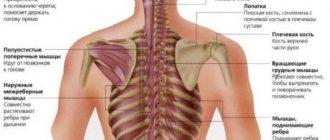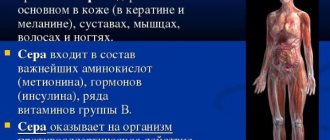Probably, each of us dreams of waking up in the morning, feeling a surge of strength, vigor and high spirits.
But often, instead of these pleasant emotions, after a night’s sleep, a person begins to experience nausea, which prevents not only normal eating, but even brushing his teeth. Many people try not to pay attention to it.
But in vain! Nausea in the morning, which is regular, can be an alarm bell indicating some kind of malfunction in our body. In this article we will look at the possible causes of nausea in the morning.
Main causes of morning sickness
Nausea in the morning is the first sign of pregnancy
At least once in their life, every person has experienced a feeling of nausea in the morning. If unpleasant sensations occur once and do not recur periodically, then you should not worry.
But if nausea constantly bothers you, it is necessary to find out the reasons for its occurrence as quickly as possible by undergoing an examination at a medical institution.
Morning sickness can be caused by:
- pregnancy;
- disturbances in the functioning of the digestive system;
- diseases of the cardiovascular system;
- inflammation of the appendix;
- inflammation of the gallbladder;
- migraine;
- disruptions in the activity of the body's endocrine system;
- pathologies of the central nervous system;
- problems in the functioning of the urinary system, kidneys;
- side effects of certain medications;
- overeating;
- drinking alcohol.
Let's consider these factors in more detail.
Treatment and diagnosis
If you are constantly bothered by nausea, a specialist will find out the causes of the symptom in several stages:
- Survey. Drawing up a detailed clinical picture allows the doctor to navigate further actions.
- Purpose of research. Depending on the circumstances under which the unpleasant feeling appeared, the doctor may prescribe: an ultrasound, a general blood test, a urine and stool test.
If the diagnostic results obtained show the absence of any diseases, the doctor will pay attention to the following points:
- whether a psychological disorder can be accompanied by nausea;
- whether relatives experienced similar symptoms;
- what foods the patient ate in the last 48 hours;
- How does this feeling affect the general condition of a person: do headaches and nausea occur along with it, are diarrhea, constipation, and flatulence bothering you.
Morning sickness in diseases of the digestive system
Nausea and weakness are signs of intoxication
Often, morning sickness may indicate problems with the gastrointestinal tract.
As a rule, unpleasant sensations occur on an empty stomach and are combined with other symptoms - heartburn, a feeling of heaviness, pain and burning in the abdomen, which can intensify after breakfast.
Nausea, accompanied by belching, bloating and aching sensations in the right hypochondrium, may be a sign of pancreatitis. With diseases of the pancreas, bitterness in the mouth and intestinal disorders often occur.
Similar symptoms appear with peptic ulcers and gastritis. Nausea can also occur due to poisoning and intestinal infections, which are accompanied by weakness, headache, and fever.
If painful sensations appear, you must contact a gastroenterologist, who will prescribe the necessary examination and establish a diagnosis.
Nausea and frequent headaches
Nausea is often complained of simultaneously with recurring headaches. Such symptoms may indicate diseases of the nervous system. This could be: migraine, traumatic brain injury, meningitis, borreliosis. Also, nausea and headaches can be combined with diabetes and arterial hypertension.
Nausea in the morning due to inflammation of the gallbladder
Vomiting in the morning can also be due to problems with the gallbladder. Symptoms of disease of this organ are also:
- the presence of a metallic taste in the mouth;
- discomfort in the right side;
- the appearance of heartburn, bloating, flatulence;
- heat.
If similar symptoms appear, you should seek medical help as soon as possible.
Symptomatic therapy
If unpleasant symptoms are caused by taking medications, it is enough to change the time of taking the medications or take them after a small snack. In case of severe intolerance to pharmaceutical drugs, doctors recommend parenteral methods of administration. Mild nausea in pregnant women, which does not violate or slightly violates the diet, does not require correction. The woman is recommended to eat frequent small meals, maintain psychological peace, and do feasible gymnastics. Severe toxicosis is an indication for hospitalization.
Since nausea on an empty stomach is associated with various diseases, to relieve it it is necessary to carry out etiotropic, pathogenetic treatment of the underlying pathology. Until the root cause of nausea is determined, herbal teas (chamomile, ginger) can be used to reduce discomfort; prokinetics, antacids, and mild sedative herbal remedies are prescribed as medications. If a symptom is combined with repeated vomiting, severe abdominal pain, or problems with general condition, you should immediately consult a doctor.
The appearance of nausea in diseases of the cardiovascular system
Low acidity is the cause of morning sickness
The occurrence of nausea in the morning may indicate disturbances in the functioning of the body's cardiovascular system. Along with it, weakness, fatigue appears, and appetite decreases.
Morning sickness and dizziness are sure companions of hypertension. You should be especially wary of the following symptoms along with nausea:
- Pain on the left side of the chest, pallor of the skin, lack of air may indicate emerging heart failure, a pre-infarction condition.
- Dizziness and a grimaced face are signs of cerebral hemorrhage.
In such cases, it is necessary to immediately call an ambulance, since such conditions threaten human life and health.
Survey
The appearance of nausea on an empty stomach is caused by various pathologies of both the digestive tract and other body systems. Therefore, a comprehensive examination prescribed by a gastroenterologist includes a wide range of instrumental methods and laboratory tests. First, the state of the gastrointestinal tract is studied, then other organs are examined. The most valuable in diagnostic terms are:
- Sonography
. Ultrasound of the abdominal cavity is used at the initial stage of the examination to quickly assess the condition of the digestive tract and develop further tactics. Non-invasive ultrasound examination allows you to detect nonspecific signs of the inflammatory process and determine morphological disorders in the gastrointestinal tract. - Endoscopy
. According to indications, endoscopy is performed to clearly visualize the mucous membrane of the stomach, esophagus, and upper parts of the duodenum. The method is used to confirm inflammatory diseases, neoplasms, and scar changes. To clarify the diagnosis, a biopsy with histological examination is performed. - Intragastric pH-metry
. Hyperacid diseases often lead to nausea on an empty stomach, therefore, in the presence of specific complaints, it is recommended to measure the pH in the stomach for 24 hours. The method allows you to assess the quality and degree of activation of the acid-producing function of the organ. Additionally, the pH in the esophagus is measured. - Stool analysis
. All patients are prescribed a standard coprogram to identify intestinal disorders and are tested for helminth eggs. If an infectious etiology of the disease is suspected, an extensive bacteriological examination of stool is performed. To exclude bleeding from the gastrointestinal tract, the Gregersen reaction is recommended. - Laboratory research
. Biochemical analysis of venous blood is a highly informative method that can be used to confirm liver and kidney dysfunctions and to identify the degree of endogenous intoxication. The blood is also tested for the most common antigens of intestinal infections, gastrin and pepsinogen levels.
All women of reproductive age who complain of morning sickness are prescribed a consultation with a gynecologist with a specific hormone test to confirm or deny the presence of pregnancy. When nausea on an empty stomach is combined with intense headaches, a neurological examination is recommended. In difficult cases, consultation with other specialists may be required to verify the diagnosis.
For complaints of nausea, a comprehensive gastroenterological examination is indicated.
Nausea due to disturbances in the body's endocrine system
Ginger mint tea - a remedy for nausea
The appearance of morning sickness may be associated with a malfunction of the thyroid gland - hypothyroidism.
With this disease, the amount of hormones produced decreases, which negatively affects a person’s well-being.
The following symptoms indicate the appearance of this endocrine disorder:
- freezing;
- depletion of body resources;
- poor appetite;
- memory problems and inattention.
Special medications prescribed by an endocrinologist after an examination will help restore hormonal levels.
Classification
When systematizing the forms of nausea, its duration, features of onset and mechanism of development are taken into account. Based on the duration of discomfort, episodic and permanent forms of the disorder are distinguished. Episodic nausea usually occurs suddenly and may or may not be related to food. More often it appears due to errors in nutrition, poisoning, and other acute conditions. Constant nausea of varying intensity is more typical for damage to the central nervous system and chronic diseases. Depending on the pathogenesis, the following symptom options are distinguished:
- Central (cerebral) nausea
. Based on stimulation of the vomiting center in pathology of the nervous system. It is observed in cases of inflammatory or tumor damage to the substance and membranes of the brain, traumatic brain injuries, and hypertensive crises. It may occur suddenly or bother the patient for a long time. After vomiting, the condition, as a rule, does not improve, but often worsens. - Toxic nausea
. Associated with activation of the vomiting center due to irritation by exo- and endotoxins of the chemoreceptor zone in the bottom of the fourth ventricle. It is observed in case of poisoning with drugs, toxic products and substances, toxic metabolites in liver and kidney failure, radiation sickness, ketoacidosis in patients with diabetes. The intensity of the symptom depends on the severity of intoxication. - Reflex nausea
. Caused by irritation of the receptor apparatus of the nervous chain of the gag reflex. Nerve endings that stimulate the appearance of nausea are located in the root of the tongue, the posterior wall of the pharynx, the stomach, the ileocecal zone, the intestines, the pancreas, the hepatobiliary system, the peritoneum, the inner ear and other organs. It is most often associated with food intake and manifests itself in the structure of gastrointestinal diseases. - Vestibular (motor) nausea
. It is provoked by a change in body position, direction or speed of movement with irritation of the vestibular apparatus and stimulation of the vomiting center. In a healthy person, it occurs in the form of motion sickness when driving a car or rotating the body. Characteristic of brain pathology with damage to the inner ear, cerebellopontine angle and vestibular stem nuclei. - Psychogenic nausea
. Observed during the implementation of a firmly established conditioned reflex. Triggers of nausea are olfactory and visual sensations that cause disgust or unpleasant emotions. It often manifests itself in neurotic and neurosis-like conditions, psychogenic disorders, overwork, and conflicts. It can serve as a somatoform manifestation of depression and psychotic disorders. - Exchange nausea
. Develops due to disturbances in the physiological transformation of nutrients against the background of vitamin, mineral, and endocrine deficiency. It is probably realized through the influence of metabolites on the receptor zone of the medulla oblongata and activation of nerve endings against the background of secondary damage to the gastrointestinal tract. Identified in patients with hypothyroidism, hyperfunction of the parathyroid glands, premenstrual syndrome, etc.
Pancreatitis – focus on the pancreas
Particular attention should be paid to such a pathology, accompanied by nausea after eating, as pancreatitis. It is accompanied by bloating, acute girdling pain radiating to the back and right hypochondrium, intestinal upset, and sudden weight loss. The diagnosis of this pathology can be made based on the results of ultrasound and laboratory tests for sugar, the presence of enzymes, and determination of the inflammatory process. Treatment of pancreatitis is associated with long-term diet, drug therapy with enzymatic and anti-inflammatory drugs.
Causes of vomiting
Causes of vomiting bile
Vomit mixed with bile has a greenish color; after vomiting, a bitter taste is felt in the mouth, and a yellow-green coating remains on the tongue. Vomiting bile may be a sign of the following pathological conditions:
- Diseases of the hepatobiliary system
: cholelithiasis, cholecystitis and cholangitis, biliary dyskinesia. - Duodeno
-
gastric reflux
: acute and chronic duodenitis, duodenal stenosis, functional dyspepsia. - Pathologies of the pancreas
: chronic pancreatitis, cysts and tumors. - Helminthic infestations
: opisthorchiasis, giardiasis. - Acute surgical diseases
: initial phase of peritonitis and acute intestinal obstruction, appendicitis. - Alcohol intoxication
.
Causes of food vomiting
Nausea and vomiting may occur at various times after eating. Remnants of what was eaten are clearly visible in the vomit. The most common causes of food vomiting are:
- Poisoning
: food poisoning, salmonellosis, escherichiosis, etc. - Stomach diseases
: acute gastritis, pyloric stenosis, neoplasms. - Damage to the esophagus:
various types of dyskinesia, congenital or acquired stenosis, ulcerative defects. - Other gastroenterological pathologies:
duodenal stenosis, afferent loop syndrome.
Causes of vomiting blood
Vomit like “coffee grounds” or mixed with fresh blood always indicates bleeding from the gastrointestinal tract. Vomiting blood occurs in the following diseases of the digestive tract:
- Peptic ulcer
: bleeding from the bottom of the ulcer, Zollinger-Ellison syndrome. - Gastritis:
erosive, hemorrhagic. - Pathology of the gastroduodenal zone:
diverticula, acute dilatation of the stomach, erosive bulbitis. - Stomach tumors.
- Diseases of the esophagus:
Mallory-Weiss syndrome, acute esophagitis, esophageal cancer. - Portal hypertension:
bleeding from varicose veins. - Complications of pharmacotherapy:
long-term use of NSAIDs, anticoagulants, corticosteroids. - Rare causes:
hemorrhagic syndromes, neurotoxicosis, excessive nosebleeds.
Causes of vomiting during pregnancy
Nausea and vomiting in pregnant women can occur both due to gestation itself and changes occurring in the body, and in the case of the development of various pathologies. Possible reasons:
- Early toxicosis
. - Gastrointestinal diseases
: GERD, gastritis and duodenitis, functional stomach disorders, hiatal hernia. - Specific pathology of pregnancy
: cholestasis, hypothyroidism, polyneuropathy of pregnancy.
Causes of fecal vomiting
Vomiting of intestinal contents is always a sign of surgical pathology that requires an urgent response. Fecal vomiting can occur under the following conditions:
- Intestinal obstruction
: obstructive and strangulation forms. - End stage peritonitis
. - Gastrointestinal fistulas.
Side effects of medications
Nausea can be a side effect of taking antibiotics.
Unfortunately, sometimes taking vital medications can be accompanied by side effects such as nausea. Most often these are drugs from pharmaceutical groups such as:
- Vitamins
- Antidepressants
- Antibiotics
- Iron supplements
- Anti-flu drugs
- Anti-inflammatory drugs
In order to minimize discomfort, you must carefully observe the dosage, method of use, storage conditions, and expiration dates of the medications.










